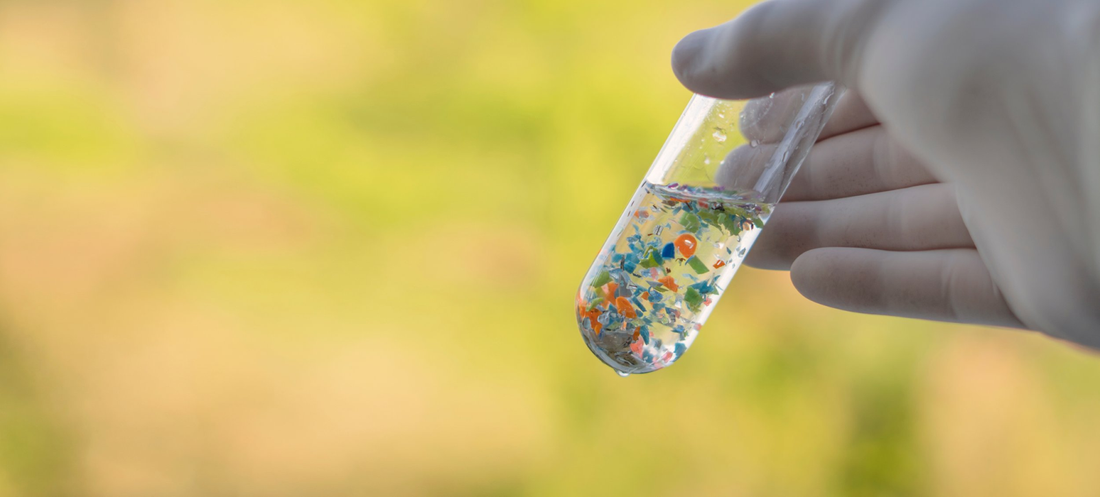Recently, a study published by the New England Journal of Medicine found that the presence of microplastics in the human body is directly linked to heart attacks, strokes, and early death. The study, which involved 257 people undergoing surgery to clean out their carotid arteries’ blood vessels, found that almost 60% of these patients had at least one type of plastic blocking their arterial blood flow, mainly fragments of two of the most commonly used plastics in the world: polyethylene (used in grocery bags, bottles and food packaging) and polyvinyl chloride (used in flooring, cladding and pipes). Although it is still unclear whether or not the microplastics directly lead to heart attacks or strokes, researchers found that people with a higher percentage of MNPs were 4.5 times more likely to be the victim of a heart attack or a stroke [1]. They theorize that with a higher amount of MNPs the macrophages (a type of immune cell that helps remove pathogens from the body) present in the blood were more likely to absorb the MNPs causing inflammation of the vessel. This inflammation may subsequently change the way plaque behaves in the body, making it less stable and triggering it to form a blood clot, which can eventually block blood flow and lead to heart attacks and strokes. Researchers speculate that MNPs may trigger inflammation within blood vessels by being absorbed by macrophages, immune cells responsible for clearing pathogens. This inflammation could potentially destabilize arterial plaque, increasing the risk of blood clots that could block circulation and lead to heart attacks or strokes.

Another study found that the presence of microplastics in the body may also be linked to the development of Parkinson’s disease as well as a type of dementia [5]. The brain consists of a protein called alpha-synuclein which is linked genetically and neuropathologically to Parkinson's disease (PD). When a person suffers from PD, the synuclein proteins aggregate, forming alpha-synuclein fibrils, which accumulate. Normally, alpha-synuclein is recycled within nerve cells. However, when these proteins begin to clump, the cell's recycling machinery becomes overwhelmed, leading to accumulation of waste. A similar phenomenon is observed when MNPs are present in the brain. The nanoplastics latch onto the proteins and bind them tightly together, forming clumps that may lead to PD and dementia.
In the face of emerging concerns about microplastic contamination and its potential health impacts, the World Health Organization underscores the importance of reducing plastic pollution globally and improving water treatment processes to effectively remove microplastics. By prioritizing comprehensive water treatment that addresses both microbial pathogens and chemical contaminants, communities can mitigate risks associated with microplastics while ensuring safe and clean drinking water for all.
The importance of access to purified, drinkable water cannot be overstated. Wisewell's Model 1 filtration system stands out as a reliable solution for ensuring that water is free from harmful contaminants, including microplastics. By employing a comprehensive four-filter purification process, Wisewell not only enhances water quality but also promotes peace of mind regarding health and safety. Choosing Wisewell's Model 1 means making a proactive investment in clean water, supporting both personal well-being and environmental sustainability.

- (https://www.scientificamerican.com/article/microplastics-linked-to-heart-attack-stroke-and-death/ )
- Microplastics and Nanoplastics in Atheromas and Cardiovascular Events | New England Journal of Medicine (nejm.org)
- https://www.nationalgeographic.com/premium/article/microplastics-plaque-heart-disease
- https://www.sciencenews.org/article/microplastics-nanoplastics-heart-attacks-strokes-health
- https://theconversation.com/nanoplastics-linked-to-parkinsons-and-some-types-of-dementia-new-study-218188
- https://www.nih.gov/news-events/nih-research-matters/plastic-particles-bottled-water
- https://www.who.int/news/item/22-08-2019-who-calls-for-more-research-into-microplastics-and-a-crackdown-on-plastic-pollution




